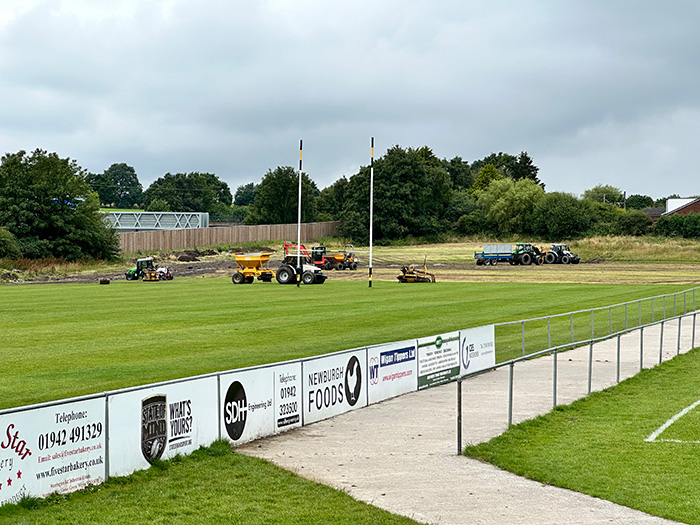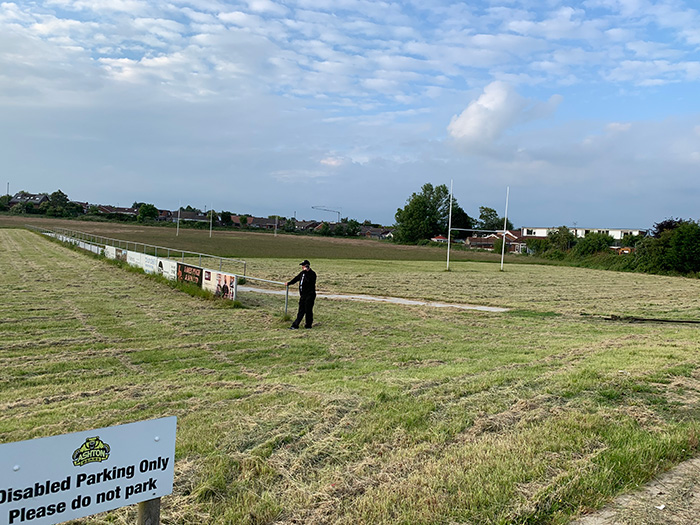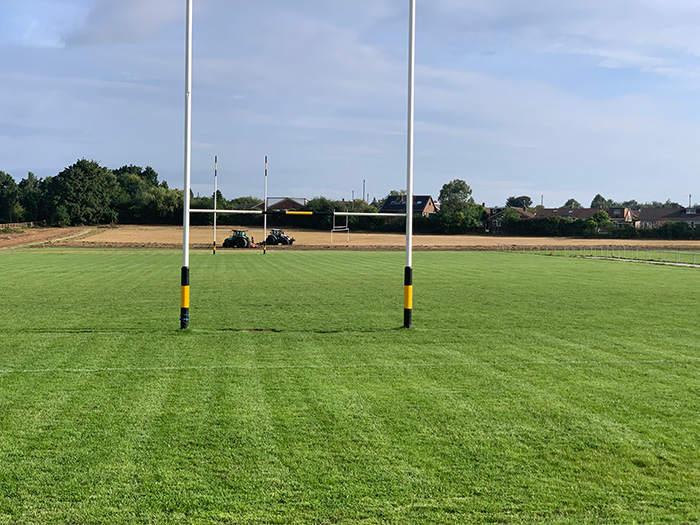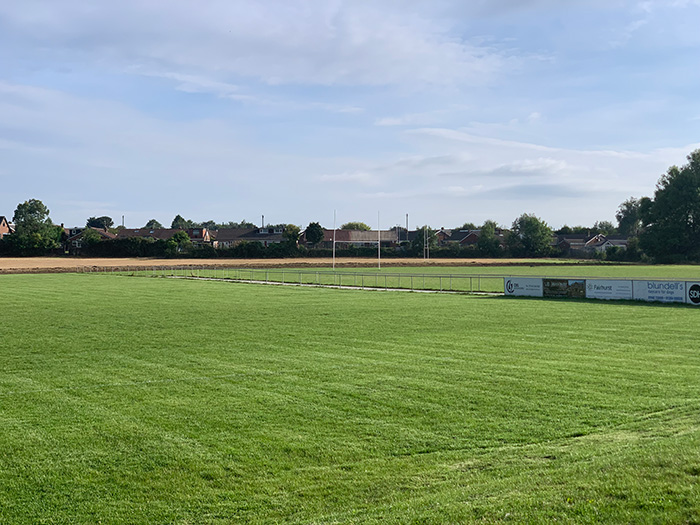A Decade Of Grassroots Pitch Improvement

Over the last ten years, the GMA’s skilled team of regional pitch advisors has been working with grassroots sports clubs to raise the standards of sports surfaces and train volunteers.
In that time, almost 50,000 pitches have been improved across grassroots football, cricket, rugby league and union.
The programme has worked with more than 12,500 clubs and 14,500 volunteers.
The Pitch Advisory Service, formerly the Grounds and Natural Turf Improvement Programme, was launched in 2014 and is funded by Sport England and the Football Foundation, working in association with the FA, ECB, RFL and RFU.

Jason Booth leads the Pitch Advisory Service, he says: “This is a brilliant example of sporting bodies working together to raise the standards of sports surfaces and the understanding of sports turf management practices among grassroots sports clubs across England.
“There has never been more pressure on pitches. Whether that’s the effect of more extreme weather caused by climate change, or more demand as a greater and more diverse range of people want to play sport.
“We all want more people playing – it brings so many health and wellbeing benefits. To enable that, we need to make sure our grassroots pitches are properly maintained – grounds are literally the foundation of sport. We need to recognise that, value grounds teams, and invest in them.”
One of the clubs that have benefitted from the Pitch Advisory Service is the Ashton Bears Rugby Club in Wigan.

The rugby league outfit, which hosts a total of 25 men’s, women’s, and children’s teams, had been hampered by an unstable pitch that frequently became waterlogged throughout the season.
“Before support from the Pitch Advisory Service, our pitches would regularly have to close for player safety. One surface was only playable for three months of the year” says Club Secretary, Mark Webster.

The Pitch Advisory Service team carried out an assessment and made a number of recommendations, including reducing the height of the cut to 40mm from 70mm and to increase the cutting frequency to weekly. Decompaction, sand topdressing, weed killing, and overseeding were also recommended. Funding was secured to install a drainage solution for the pitches.
“We’re incredibly grateful for the support we received. It’s truly transformed our facilities at Bear Park. We now have some of the most resilient pitches in the area – staying open when others have had to close” Mark continues.
“Our girls’ teams can play concurrently and both men’s open‑age teams can play at home. We host up to eight games on a Sunday. We’ve also been able to expand to create new women’s teams, something which previously was impossible due to the lack of capacity on the old pitches.”
Building on the success so far, the Pitch Advisory Service continues to offer support to grassroots clubs.

Any club in England looking for support can contact the Pitch Advisory Service to find out more: www.thegma.org.uk/services/pitch‑advisory‑service
There are also a host of free resources available with the Grounds Management Toolkit, essential grounds maintenance resources for volunteers from the GMA: https://resources.thegma.org.uk
The Grounds Management Framework is a good place to start to consider the surface quality a club is aiming for, and the investment and skills needed to get there: https://thegma.org.uk/GMF











































